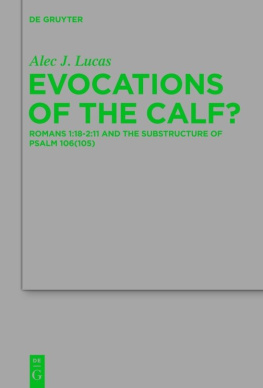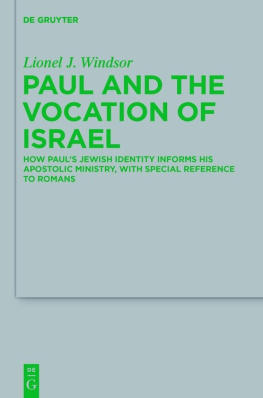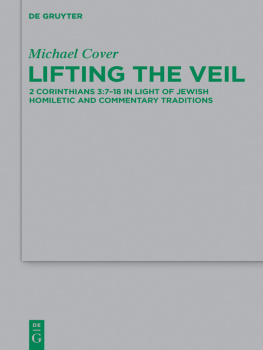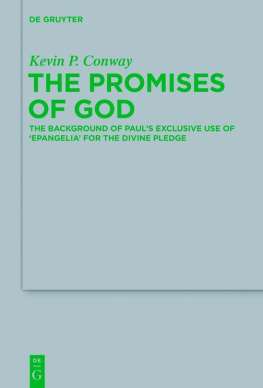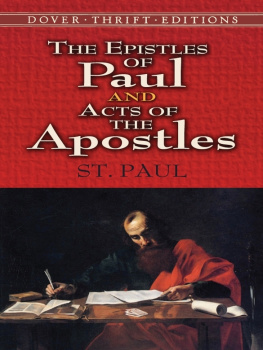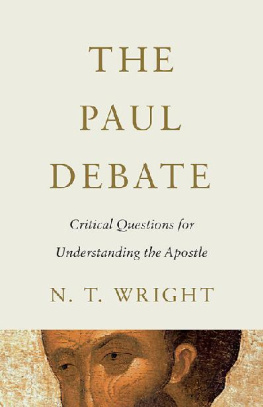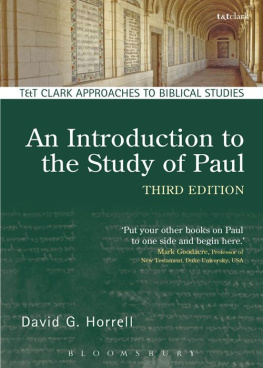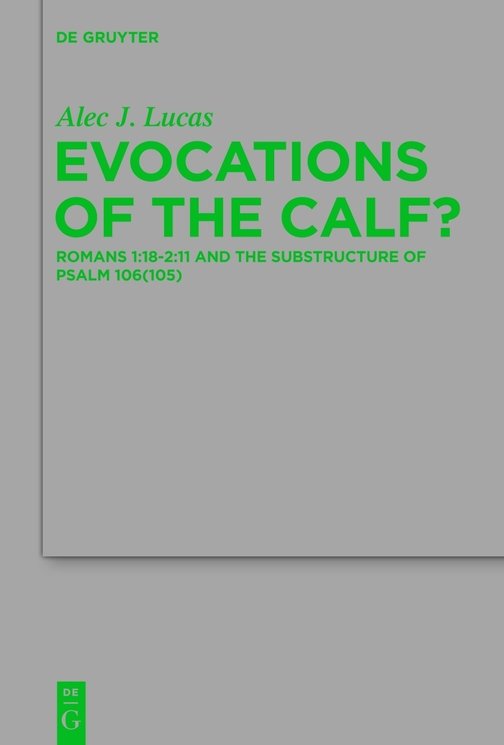Alec J. Lucas - Evocations of the Calf?: Romans 1:18–2:11 and the Substructure of Psalm 106(105)
Here you can read online Alec J. Lucas - Evocations of the Calf?: Romans 1:18–2:11 and the Substructure of Psalm 106(105) full text of the book (entire story) in english for free. Download pdf and epub, get meaning, cover and reviews about this ebook. year: 2014, publisher: De Gruyter, genre: Romance novel. Description of the work, (preface) as well as reviews are available. Best literature library LitArk.com created for fans of good reading and offers a wide selection of genres:
Romance novel
Science fiction
Adventure
Detective
Science
History
Home and family
Prose
Art
Politics
Computer
Non-fiction
Religion
Business
Children
Humor
Choose a favorite category and find really read worthwhile books. Enjoy immersion in the world of imagination, feel the emotions of the characters or learn something new for yourself, make an fascinating discovery.
- Book:Evocations of the Calf?: Romans 1:18–2:11 and the Substructure of Psalm 106(105)
- Author:
- Publisher:De Gruyter
- Genre:
- Year:2014
- Rating:3 / 5
- Favourites:Add to favourites
- Your mark:
Evocations of the Calf?: Romans 1:18–2:11 and the Substructure of Psalm 106(105): summary, description and annotation
We offer to read an annotation, description, summary or preface (depends on what the author of the book "Evocations of the Calf?: Romans 1:18–2:11 and the Substructure of Psalm 106(105)" wrote himself). If you haven't found the necessary information about the book — write in the comments, we will try to find it.
This study proposes that both constitutively and rhetorically (through ironic, inferential, and indirect application), Ps 106(105) serves as the substructure for Pauls argumentation in Rom 1:182:11. Constitutively, Rom 1:1832 hinges on the triadic interplay between they (ex)changed and God gave them over, an interplay that creates a sinretribution sequence with an a-ba-ba-b pattern. Both elements of this pattern derive from Ps 106(105):20, 41a respectively. Rhetorically, Paul ironically applies the psalmic language of idolatrous (ex)change and Gods subsequent giving-over to Gentiles. Aiding this ironic application is that Paul has cast his argument in the mold of Hellenistic Jewish polemic against Gentile idolatry and immorality, similar to Wis 1315. In Rom 2:14, however, Paul inferentially incorporates a hypocritical Jewish interlocutor into the preceding sequence through the charge of doing the same, a charge that recalls Israels sins recounted in Ps 106(105). This incorporation then gives way to an indirect application of Ps 106(105):23, by means of an allusion to Deut 910 in Rom 2:511. Secondarily, this study suggests that Pauls argumentation exploits an intra-Jewish debate in which evocations of the golden calf figured prominently.
Alec J. Lucas: author's other books
Who wrote Evocations of the Calf?: Romans 1:18–2:11 and the Substructure of Psalm 106(105)? Find out the surname, the name of the author of the book and a list of all author's works by series.

